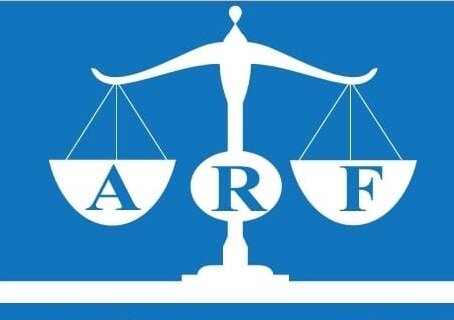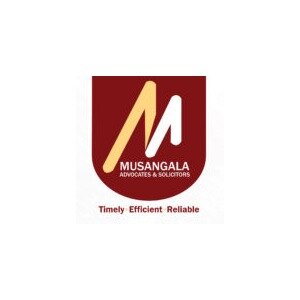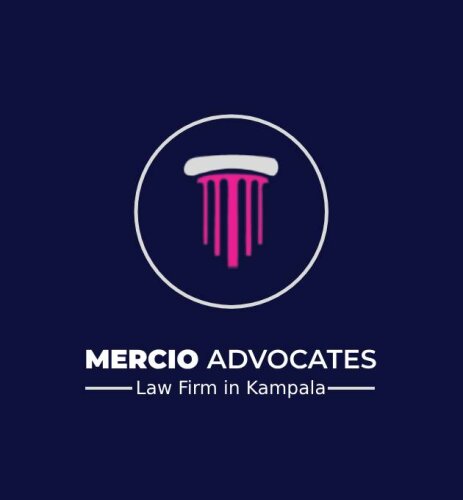Best State, Local, and Municipal Law Lawyers in Uganda
Share your needs with us, get contacted by law firms.
Free. Takes 2 min.
Or refine your search by selecting a city:
List of the best lawyers in Uganda
About State, Local, and Municipal Law in Uganda
State, Local, and Municipal Law in Uganda encompasses the regulations and legal frameworks that govern the operation and interaction of public entities at different levels of administration within the country. This branch of law encapsulates the rules that ensure effective governance through decentralization, which allows local governments to manage their own affairs as enshrined in the Ugandan Constitution. The various statutes, such as The Local Governments Act, empower local councils, district administrations, and municipalities to exercise authority over matters like education, health, and infrastructure within their jurisdictions, while still aligning with national laws.
Why You May Need a Lawyer
Engaging with State, Local, and Municipal Law often involves intricate legal processes and understanding complex bureaucratic hierarchies that can be overwhelming. A lawyer specializing in this field can assist in the following common scenarios:
- Resolving disputes with local government authorities.
- Navigating the regulatory landscape for business operations within municipalities.
- Addressing land use and zoning issues.
- Understanding and ensuring compliance with tax obligations and local levies.
- Advocating for community rights and equitable service delivery.
Local Laws Overview
Local laws in Uganda are largely shaped by the national framework that emphasizes decentralization. Key elements that are pertinent include:
- Local Government Councils: They have authority over local economic development, service delivery, and implementation of government programs.
- Fiscal Decentralization: Local governments are responsible for generating revenue through local taxes, rents, and other fees.
- Land and Planning: Land is predominantly a local government function, with responsibilities for land management, development planning, and zoning regulations.
- Public Health and Safety: Mandates oversight of community health services, water supply, and sanitation.
- Education Services: Local governments manage primary and secondary schools within their jurisdictions.
Frequently Asked Questions
What is the role of a local government in Uganda?
Local governments in Uganda are responsible for executing decentralized functions, including service delivery, infrastructure development, and economic governance within their respective areas.
How is power distributed between the central and local governments?
The Constitution of Uganda provides for the devolution of power, allowing local governments to exercise authority over specific areas while remaining subordinate to national law for broader governance.
What legal framework governs local government operations?
Key statutes such as The Local Governments Act cap. 243 and the Constitution of Uganda primarily govern their operations, alongside various ordinances and by-laws specific to each local authority.
How are disputes between local and central governments resolved?
Disputes are generally resolved through dialogue, advisory roles of oversight bodies such as the Ministry of Local Government, or mediation and arbitration processes facilitated by legal institutions.
Are there specific taxes imposed by local governments?
Yes, local governments levy property rates, trade licenses, and other local fees to generate revenue needed for service provision and development projects.
Can a resident challenge decisions made by local authorities?
Yes, individuals can seek legal recourse by petitioning relevant legal bodies if they believe a local government decision violates their rights or is unlawful.
How does the public participate in local governance?
Residents can engage in local governance through public meetings, consultations, and elections, contributing input and holding authorities accountable.
What are common legal challenges faced by local governments?
Challenges include insufficient funding, bureaucratic inefficiencies, land management disputes, and compliance with national policies and standards.
Who can represent me if I have legal issues with local government?
A lawyer with expertise in State, Local, and Municipal Law can provide representation and guidance throughout the legal process.
How do municipal by-laws affect my business operations?
By-laws can stipulate operational requirements such as zoning restrictions, trade licensing, and health regulations, affecting how businesses operate within their areas.
Additional Resources
If you require more information or assistance, consider reaching out to these resources:
- The Ministry of Local Government - for updates on national policies affecting local governments.
- The Uganda Local Governments Association - offers support and advocacy for local governance issues.
- The Uganda Law Society - can refer you to qualified lawyers specializing in local government law.
- The Local Government Finance Commission - for insights on local government finances and taxation.
Next Steps
If legal assistance is needed, consider the following steps:
- Identify the specific legal issue or query you have regarding local governance.
- Consult with a lawyer who specializes in State, Local, and Municipal Law for expert advice and representation.
- Contact local government offices directly for preliminary guidance and resources they may offer.
- Stay informed of local and national legislative changes that may impact your situation.
Taking proactive steps can aid in addressing legal concerns effectively and ensuring your rights and interests are protected.
Lawzana helps you find the best lawyers and law firms in Uganda through a curated and pre-screened list of qualified legal professionals. Our platform offers rankings and detailed profiles of attorneys and law firms, allowing you to compare based on practice areas, including State, Local, and Municipal Law, experience, and client feedback.
Each profile includes a description of the firm's areas of practice, client reviews, team members and partners, year of establishment, spoken languages, office locations, contact information, social media presence, and any published articles or resources. Most firms on our platform speak English and are experienced in both local and international legal matters.
Get a quote from top-rated law firms in Uganda — quickly, securely, and without unnecessary hassle.
Disclaimer:
The information provided on this page is for general informational purposes only and does not constitute legal advice. While we strive to ensure the accuracy and relevance of the content, legal information may change over time, and interpretations of the law can vary. You should always consult with a qualified legal professional for advice specific to your situation.
We disclaim all liability for actions taken or not taken based on the content of this page. If you believe any information is incorrect or outdated, please contact us, and we will review and update it where appropriate.
Browse state, local, and municipal law law firms by city in Uganda
Refine your search by selecting a city.
















